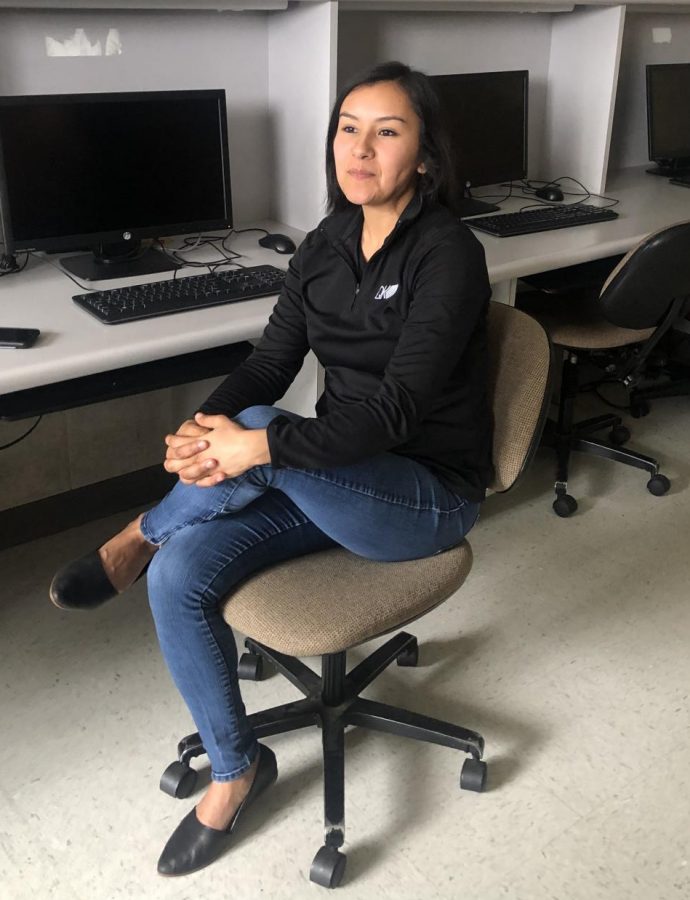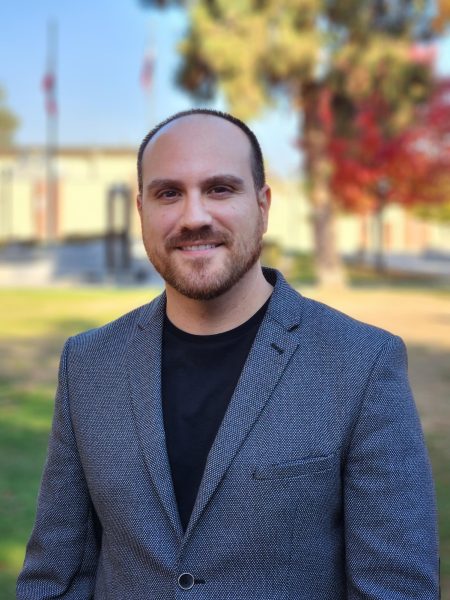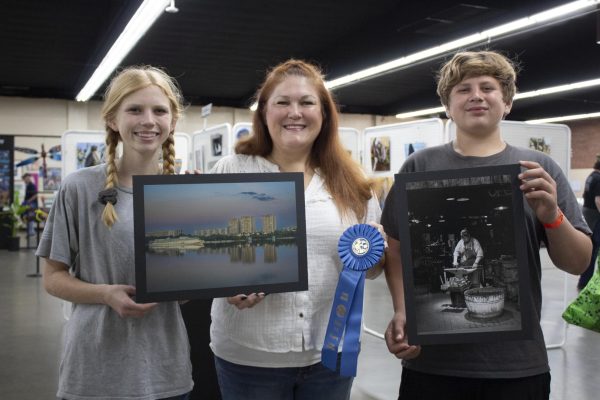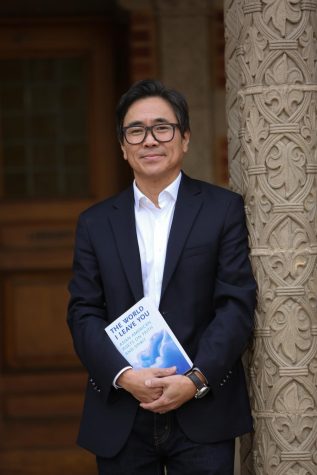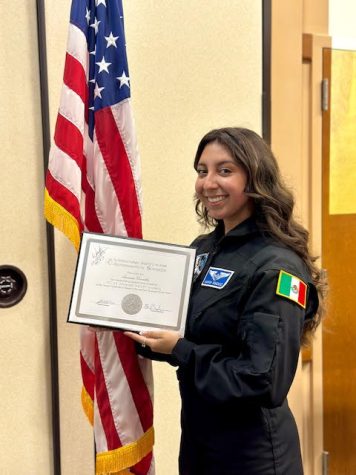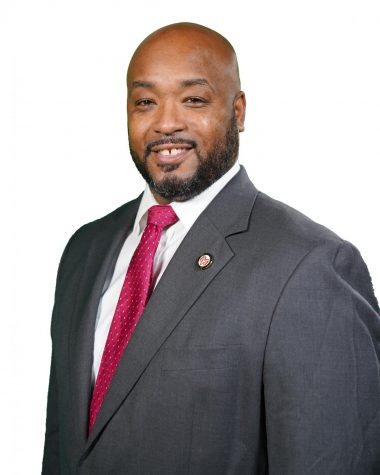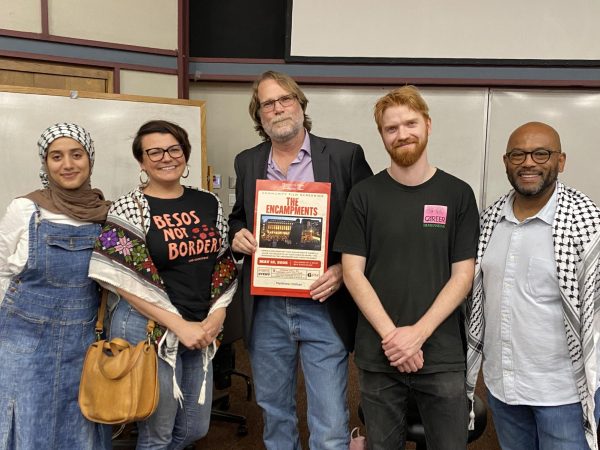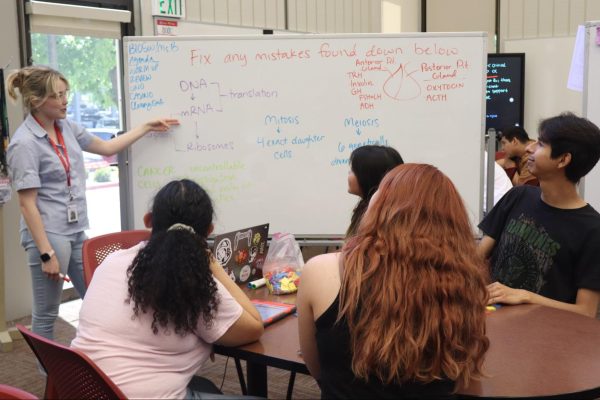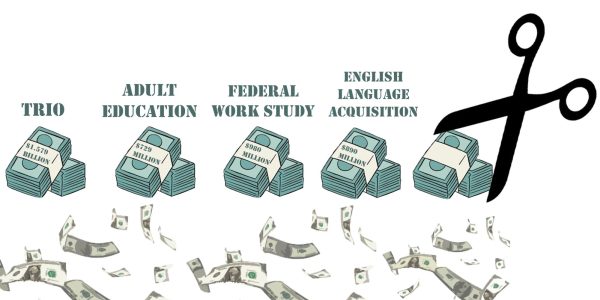Trustee Perea Plans for the Brightest Future
Photo by: Tommy Tribble
Annalisa Perea is a millennial, a Latina, a member of the LGBT community and one of the newest members of the Board of Trustees. Her background in urban planning and design is proving instrumental during her term thanks to Measure C and the high profile infrastructure projects its funding, Thursday, April 4.
Community members gathered before a wall of design plans, dozens of photos portraying different concepts and configurations of the planned West Fresno campus.
The planning charrette was open to the public. Students and faculty held green and red dots, which they used to mark their preferences for one West Fresno possibility over another.
The goal was collaborative, a meeting of minds between the architects and designers of buildings, and the people who might inhabit those buildings.
Annalisa Perea, one of the newest members of the board of trustees, snapped a photo.
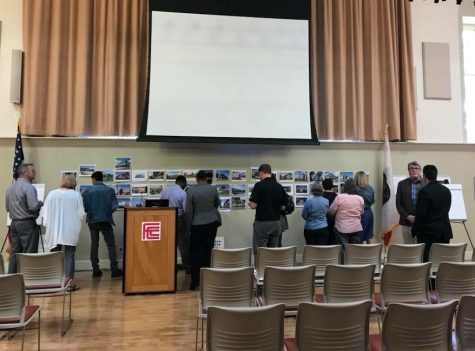
Perea characterized the charrette as both visual and interactive, as democracy in action. “The final design [of the West Fresno campus] truly is reflective of all the voices. It’s hard to capture the voice of hundreds of individuals.”
Perea herself has a background in urban planning, an early interest that was ignited at Bullard Talent, a K-8 school that accepts students through an application process, or a lottery. Their website boasts the proud mission statement: “Arts are ACADEMIC.”
Indeed, it was a 3D perspective course that first kindled Perea’s interest in structures. “That’s when I started to draw cities,” she said. The cities would stay with her through her time at Fresno City College, and all the way to Cal-Poly San Luis Obispo, where she majored in city planning.
She has served on the board of directors for the annual REEL Pride Film Festival, which showcases “a wide array of LGBTQ cinema and entertainment home to the Central Valley,” per their website.
She has served on the board of directors for the annual REEL Pride Film Festival, which showcases “a wide array of LGBTQ cinema and entertainment home to the Central Valley,” per their website.
She served as the vice president of the Central California chapter of the U.S. Green Building council. She now serves on the State Center Community College District’s board of trustees.
“I provide a perspective to the board that didn’t already exist,” she says. But it’s not just her background in project entitlements, environmental planning, and urban design that defines Perea and her presence on the board.
She is also the heir to a political dynasty of sorts. Her father, Henry R. Perea, and her brother, Henry T. Perea both held the District 7 seat on the Fresno City Council. While their bids for mayor were unsuccessful, her brother was elected to the California State Assembly in November 2010. Her father served on the Fresno County Board of Supervisors in 2008.
Still, for every perceived advantage there are qualities that many would call disadvantages.
Perea is a millennial, Latina, and a member of the LGBT community. She is one of the only openly LGBT elected officials in Fresno at this time.
Perea references a statistic from the LGBT Victory Institute, a national organization that hopes to elevate queer politicians. According to their recently released report, only 0.1% of elected officials are openly LGBT. That adds up to 559 out politicians, compared to the estimated 11 billion LGBT adults in the U.S.
That less than a percentage point is, “Nothing,” according to Perea. “If we don’t have a seat at the table, we have to trust that we have allies that are going to be there.”
She said she always knew she wanted to serve her “communities,” whether that means Latinx people, LGBT people, millennials, or the low income communities she came from. “I got to the point where it was my turn to step up.”
It is serendipitous that Perea’s term would align so perfectly with the high profile infrastructure spending the board has taken on in light of Measure C. Approved by voters in 2016, the $485 million bond issue was earmarked for infrastructural improvements for the State Center Community College District.
“A lot of [the Measure C projects] are in the very early stages, a lot of them are closer to coming to fruition,” she said.
The new $87 million West Fresno satellite campus is rapidly coming to fruition. While the recently approved parking structure is in its earliest planning stages, Perea says it will cost $15 million, provide 1,000 new spaces, and likely, will be five floors high.
Perea said she hopes her experience as a city planner can guide these new and exciting projects to their best possible conclusion, their brightest futures.
She remains intrigued by urban planning. “How do you make the built environment possible? Cities don’t just pop out of thin air. There’s something behind it,” she said.
She describes the process, and paints a portrait of a world without city planners: a sprawling city of incompatible buildings and businesses, of housing paired with industrialization, and quality of life issues as a result.
But what drew Perea away from city planning to the policymaking that defines the board of trustees and local politics is the direct impact. A city planner’s work is long-term; it’s a big picture approach spanning years. “At the State Center level, we have the opportunity to do a lot of good effective change in the next two to three years because we have the Measure C money,” she said.
Perea’s position is powerful in the short-term, and in the long term, she hopes to inspire many others to take their seats at the table. Design charrettes are only one of the forms that democracy takes–representation is another.
“You don’t have to be an older man to hold public office,” she said. “You can be young. You can be female. You can be queer.”
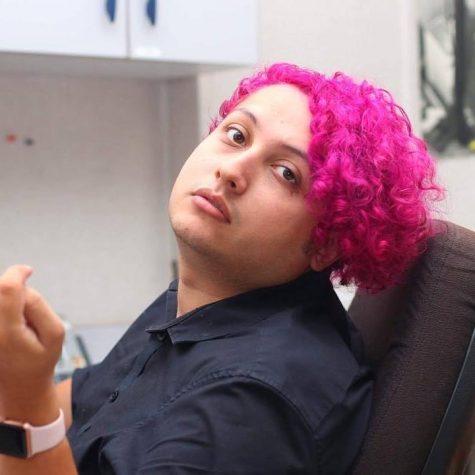
Tommy Tribble is the 25-year-old editor in chief of the Rampage, formerly the opinion editor. Tommy is an English major, a writer, an aspiring novelist,...

